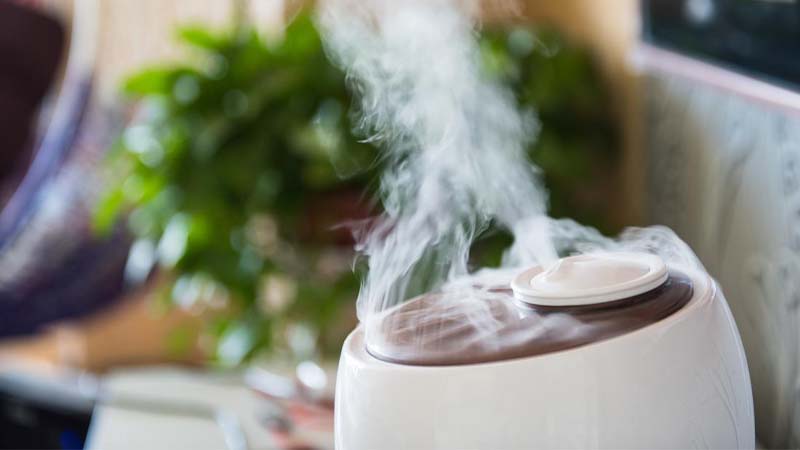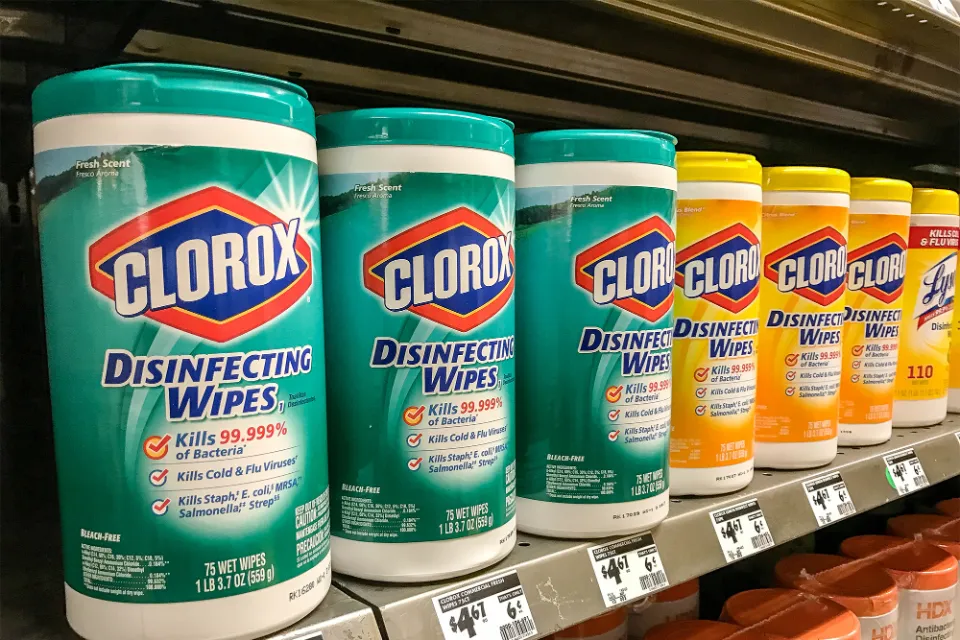The advice provided below should assist you in deciding whether you require a home air humidifier and which model is best for you. Let’s look at humidifier benefits first.
Humidifiers are better for health, seasonal comfort, safe electronics, happier plants, long-lasting furnishings, save energy and money.
The winter, when the air is drier, is when they are most useful. You should clean your humidifier every three days because they require serious maintenance.
In all seriousness, using a humidifier is a wellness tip you should try this winter and beyond. To learn more about humidifiers and all of their advantages, keep reading.
What Are Humidifiers, and What Do They Do?
It’s likely that you’ve experienced humidity if you’ve ever traveled to the South in the summer. The kind of air that makes you feel warm and sticky and has that feeling of weight to it. Humidity, in more technical terms, is the quantity of water vapor in the atmosphere. High humidity results from the presence of lots of water vapor. Low humidity is present when there is little.
You can probably guess what a humidifier does now that you understand what humidity is. They increase the humidity of the air by adding moisture in the form of water vapor.
There are various types of humidifiers, and each has advantages and disadvantages. Below are the five most common types:
Central humidifiers:Central humidifiersare built into a person’s heating system. They have a variable rate of water vapor release into the home.
Ultrasonic humidifier: The operation of an ultrasonic humidifier is fairly simple. They have a water reserve that vibrates quickly to release water vapor into the atmosphere. They are known as “cool mist” humidifiers because the water is never heated. The fact that they don’t get too hot and pose a burn risk makes them a good option for kids.
Impeller humidifier: Humidifiers with impellers release cool air, similar to ultrasonic humidifiers. On the other hand, they use a rotating disk as opposed to vibrations.
Evaporator: Air is blown through a wet filter by an electric fan in evaporator humidifiers. This releases a refreshing mist into the air.
Steam vaporizer: Electricity is used by steam vaporizers to produce steam that is blown into the atmosphere. The air is initially cooled, so it feels cool as it leaves. But, they are still known as “warm mist” humidifiers. When using these around kids, use caution as the hot water can result in burns.
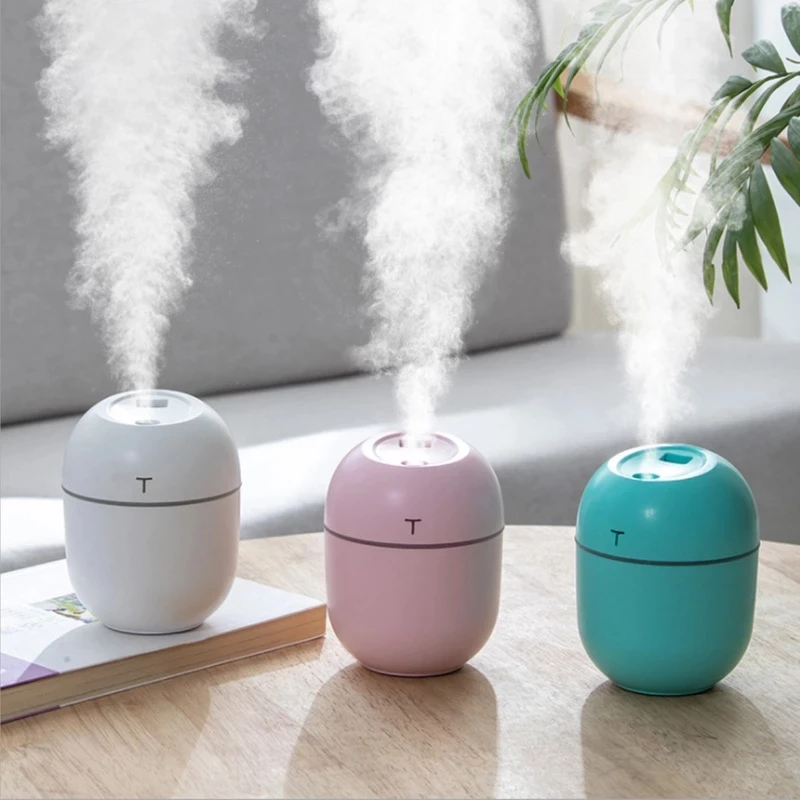
Air Humidifier Benefits
Better Health
Making your home less inviting for cold and flu germs is the main advantage of using an air mist humidifier. Winter colds are more prevalent than other seasons because of the dry indoor air that is ideal for airborne viruses to thrive in.Women’s Health Watch: COPD, or chronic obstructive pulmonary disease, symptoms can be reduced with the aid of humidifiers. If you’re curious about what COPD is, read this article.’
Seasonal Comfort
Nobody likes to deal with hair that stands on end from static electricity and skirts that cling. Any of the uncomfortable symptoms brought on by dry air, such as bloody or dry noses, can make a pleasant winter intolerably miserable. Your home’s air will feel more like the other seasons thanks to an air humidifier, reducing discomfort for you and your family. This is a good thing, unless you are really set on tradition and how things have always been done. Imagine the money you will save on body lotion!
Safe Electronics
Static electricity causes damage beyond just clingy skirts. It may surprise you to learn that a static discharge can harm your computer or other electronics. This can be much more financially damaging than the brief electricity shock.
Happier Plants
The majority of indoor houseplants are tropical species that, well, thrive in the tropics. Your plants need more humidity than the 23% that prevails when the outside temperature falls below freezing, even though you don’t need to have actual mist hanging in the air of your house to make them happy. You’ll be praised by your plants for bringing a humidifier with you!
Long-Lasting Furnishings
The wallpaper and paint in very dry homes may become damaged to the point of peeling. If you simply add some moisture to the air when necessary, that pricey textured paint job you paid for might last a lot longer. A wood floor’s slats may separate and leave gaps, which become clogged with dust and prevent them from closing again.
Saving Energy and Money
Your body feels warmer when the humidity level is high. When you compare how warmth is felt when the surrounding humidity level is either high or low, you can understand this principle. 80 degrees Florida’s high humidity can make Fahrenheit feel much warmer than Colorado’s low humidity. The same idea holds true for your home; if the humidity is low, you’ll feel cooler. You can feel warmer, use less energy, and ultimately spend less money by simply introducing moisture to your home’s air instead of turning up the dry heat.
Who Can Benefit from a Humidifier?
People can gain from humidifiers in many ways. According to our experts, you might benefit from using a humidifier if you experience any of the following:
- Allergies
- Asthma
- Congestion
- Dry sinuses
- Dry throat
- Nose bleeds
- Dry skin
“A lot of people aren’t aware of just how much their environment directly affects their skin and general health—air that has a less-than-optimal humidity level, below 40-60 percent, can pull moisture from the skin and dehydrate it, making it appear older and duller,” Engelman says.
How Often Should You Use a Humidifier?
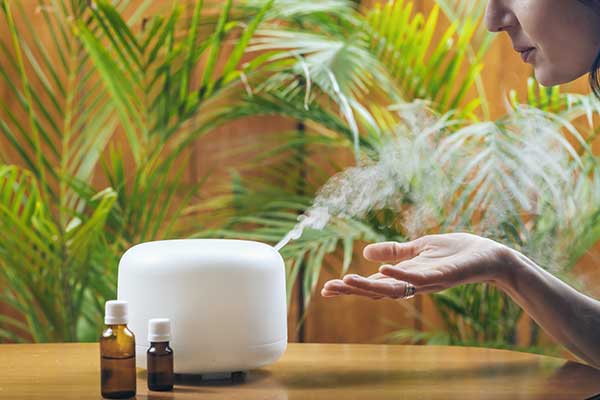
Humidifiers are best used when the air is dry because they add moisture to the air. Where you live will determine which months are appropriate. But in general, humidity tends to be lower in the winter. The humidity in your home also decreases as the humidity outside does during the winter.
But using air conditioning in the summer may also help to reduce indoor humidity. This may sound unclear. But the key message is this: If your home has low humidity, use a humidifier.
How will you however know? Consider purchasing a hygrometer, a tool that measures the humidity levels in your home. Consider using a humidifier if the reading is lower than 40%.
Humidifier Maintenance: Use and Upkeep
Even the most effective humidifiers require significant upkeep—more than you might anticipate from such a tiny comforting gadget. Here are some handy tips on how to take care of the pesky device.
- Clean every third day
How often you should clean your humidifier? Without proper cleaning, your humidifier can become a breeding ground for bacteria and mold — both of which can make you sick.
But how? Here are step-by-step directions:
Your humidifier needs to be cleaned every three days. Here’s how to do it:
- Use distilled water:Minerals found in tap water can encourage the growth of harmful bacteria inside humidifiers. The best option for your humidifier is distilled water because it has fewer minerals.
- Change your humidifier water: Try to replace the water in your humidifier tank once per day, or more if possible.
- Use hydrogen peroxide: To get rid of minerals in the tank, clean your humidifier with 3% hydrogen peroxide. After cleaning, be sure to rinse the tank to prevent chemical vaporization.
- Replace the humidifier filter: If your humidifier has a filter, be sure to replace it as often as the manufacturer suggests, or more frequently if it gets dirty.
- Clean and drain your humidifier before storing it: Before storing it away for the summer, make sure to empty and clean your humidifier.
- Disinfect every month or so
A thorough cleaning is required. However, it might not completely eradicate all bacteria and other microorganisms that can accumulate. To disinfect your device, clean all surfaces that touch water with a 3% solution of hydrogen peroxide. To prevent the disinfectant from spreading throughout the air, be sure to rinse everything well.
- Use distilled bottled water
Many experts say it’s best to choose distilled water. Low mineral content distilled water means that little mineral vapor is released into the atmosphere. A low mineral content also means less dirt to clean.
- Do not exceed 50% humidity levels
Greater chances of harmful organisms are associated with higher humidity levels. Hygrometers are a useful tool for determining humidity levels. Additionally, lower the humidity if you notice condensation on the windows or damp surroundings.
- Don’t forget to replace the filter
Make sure to replace the humidifier’s filter system, if it has one, every six months or as the manufacturer directs.
- Keep the humidifier away from the bed
Be sure to place your humidifier several feet (about 2 m) away from the bed. However, keep in mind that every humidifier is unique. Refer to your humidifier’s user manual if you have any questions.
Read about Air Purifier Vs Humidifier
Tips for Using a Humidifier in Your Home
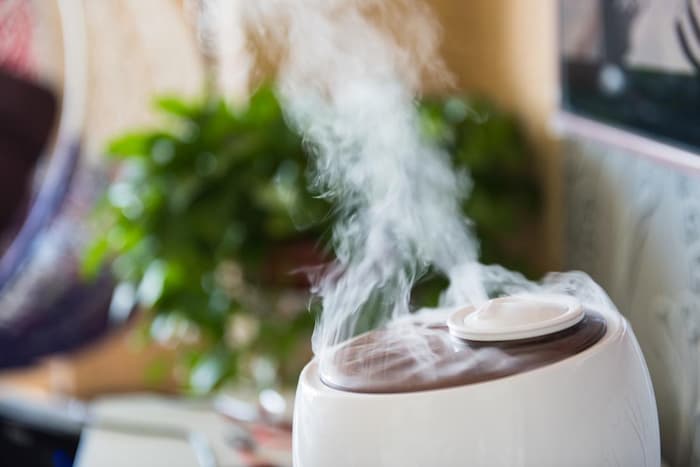
You should be careful to use a humidifier correctly every time you use one. This will not only increase the humidifier’s lifespan, but it will also protect you, your house, and its contents from harm.
- Use distilled or demineralized water instead of tap water, which may contain minerals that promote the growth of mold. Use filtered water if at all possible. By doing this, you can help prevent the growth of mold or bacteria in your humidifier and the air you breathe.
- Change the water every day because mold can grow in stagnant water. Make sure to change the water in your humidifier every day.
- Clean it once a week; once more, you want to keep mold and bacteria at bay. Regularly use a disinfectant to clean the humidifier’s interior.
- If your humidifier has filters, make sure to replace them as often as the manufacturer suggests. Not all humidifiers have filters, but if yours does, follow their advice. You definitely don’t want trapped mold and bacteria to be released into the air if you don’t change it enough.
It is evident that breathing dry air can harm your health. Using a home humidifier to add a little moisture to the air can be a simple fix for this issue. Don’t use one too much to avoid problems with mold and dust mites. Excessive use can result in excessive moisture levels. Using an air purifier at the same time can also help improve indoor air quality.
Conclusion on Humidifier Benefits
By slowing the spread of influenza, humidifiers can keep people healthy during the drier winter months. Additionally, they can aid in reducing snoring, easing allergy and asthma symptoms, and moisturizing the skin.
However, if your humidifier is not properly maintained, bacteria may build up and aggravate allergy symptoms, sicken you, or infect you. To obtain these health advantages, therefore, be sure to maintain your humidifier properly and keep track of humidity levels.
